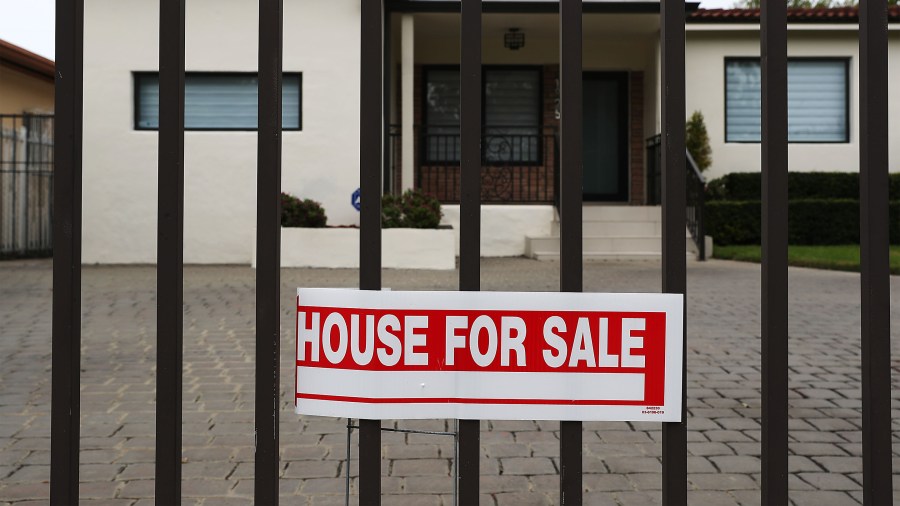AI is reshaping the way we buy, sell and value homes

The housing market continues to defy gravity. Sales of existing homes rose more than 10% last month compared to a year ago, hitting their highest level since December 2006, according to the National Association of Realtors. It’s all about low interest rates and intense competition for available homes.
And now, more than ever, people are relying on online platforms to search for — and even buy — houses. And that opens the door for artificial intelligence to play a bigger role, like using computer vision to create real estate listings based on photos. I spoke with Christopher Geczy, a professor at the Wharton School of the University of Pennsylvania who teaches about real estate and insurance technology. The following is an edited transcript of our conversation.

Christopher Geczy: What artificial intelligence and specifically computer vision offer is the potential to refine a set of choices, perhaps rapidly, and specifically customize a set of choices that might appeal to you. It can recognize specificities that are hard to see and hard for humans to judge. For example, if you have a particular hardwood floor you may or may not know about, the intelligence can potentially check against a broad database of images to compare it to. And that’s an expansion of your intelligence and it’s a tool for you, but it also helps you perhaps even make better choices.
Amy Scott: I’m wondering, though, how much a computer or computer vision can actually see something like whether a house has hardwood floors or how sunny the kitchen is. Are we there yet?
Geczy: Well, I think we’re getting closer and closer. But the advent of computer technology, especially with respect to artificial intelligence —computer vision — is that it can compare what it sees to hundreds of thousands of other examples for reference points. The scale of the intelligence can potentially add where humans can potentially lack.
Scott: One thing I wanted to ask you about is appraisals and how AI could be used in valuing homes. There was some research out this week showing that homes owned by Black Americans are often appraised at lower values than very similar homes in predominantly white neighborhoods. If you have AI involved, could that either help or even perpetuate those disparities?
Geczy: The challenge that we have is that algorithms can inherit biases that might be found in the data. The promise of the intelligence and the computer vision in this case is that it can potentially be audited in a way humans potentially cannot be. There can be a record of why it is summarizing information in a particular way. It can be potentially retrained if there are errors or constrained, and it can be relied upon to be repetitive again and again. You might make a different assessment at the beginning of the day than you do at the end of the day if you’re tired. It can also accumulate a database, and so over time it can get increasingly more accurate. Whereas, humans have natural limitations.
Scott: Did I read my notes for this interview right — that you actually have bought a house for sale sight unseen?
Geczy: I did, I did. I’m not sure whether I should be proud about it or not. But I had my own virtual tour of it. It wasn’t through artificial intelligence or through computer vision, but it was with a real estate agent walking through the home, making commentary. In the words of a financial colleague of mine, “What is a brain, but a complicated neural network?” And that’s what he did. He walked me through.
Scott: And were you happy with your purchase?
Geczy: I was ecstatic with it. In part because it shows well. It’s also partially a rental property. And what I saw was also what other people see. On the other hand, we also know that — not necessarily in my case but in general — real estate agents are tilted toward the sale, whereas perhaps an algorithm may or may not be.

Related links: More insight from Amy Scott
One company experimenting with computer vision is Zillow, as part of its online home valuation tool known as the Zestimate. Some people watch it for their own home like a stock price. But how accurate is that estimate? Well, the company says half of all homes that are actually on the market end up selling within 2% of its estimate, and half sell outside that range. For homes not on the market, the error rate is much higher.
You can check out my reporting on the quest for more reliable estimates and the downside of relying on them.
The future of this podcast starts with you.
Every day, the “Marketplace Tech” team demystifies the digital economy with stories that explore more than just Big Tech. We’re committed to covering topics that matter to you and the world around us, diving deep into how technology intersects with climate change, inequity, and disinformation.
As part of a nonprofit newsroom, we’re counting on listeners like you to keep this public service paywall-free and available to all.
Support “Marketplace Tech” in any amount today and become a partner in our mission.











